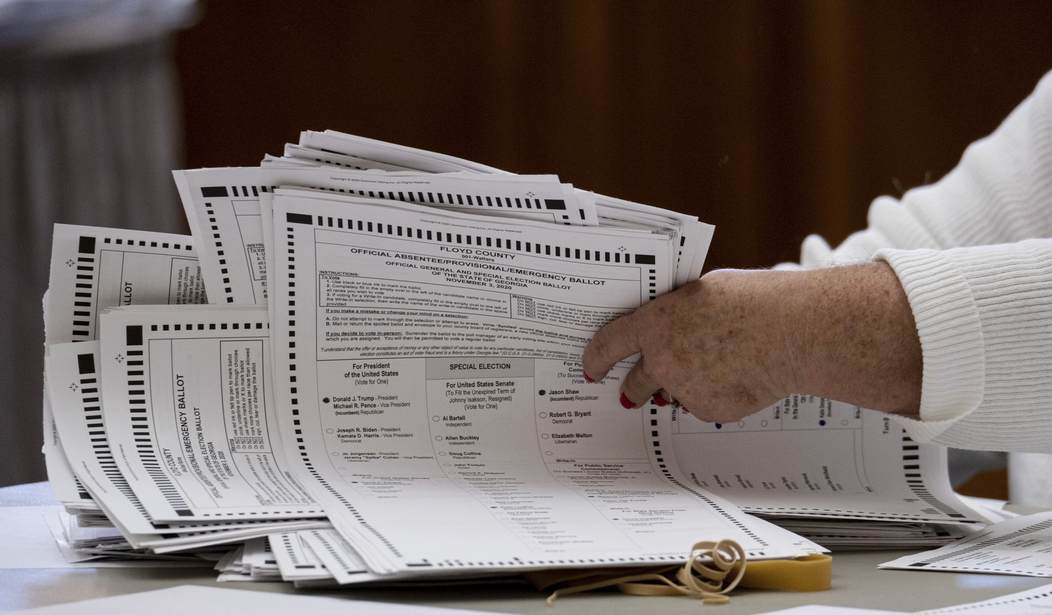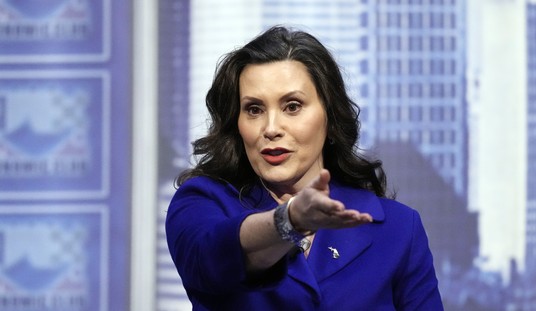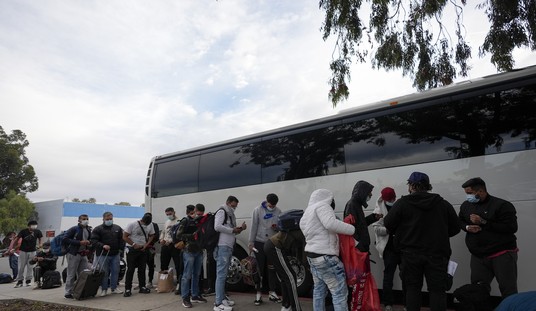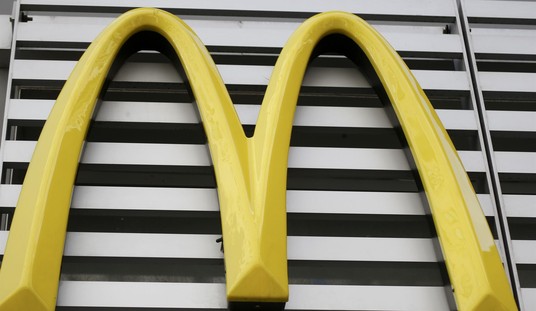As Republicans debate who is best placed to win back the White House from Joe Biden in 2024, a regular point of contention is who is most likely to win in swing states such as Arizona, Georgia, Wisconsin and Pennsylvania.
Supporters of Donald Trump often make the case that only he can bring back the working-class voters in the Rust Belt who propelled him to victory over Hillary Clinton in 2016. Yet soon, those arguments may well be history.
Sixteen states have joined the National Popular Vote Interstate Compact (NPV), which awards each state’s Electoral College votes to the presidential candidate who receives the most votes in all 50 states and the District of Columbia. The compact goes into effect when enacted by states with at least 270 electors — the magic number to become president.
The 16 states that have passed NPV-enabling legislation have 195 Electoral College votes, although that number will soon increase as Minnesota’s state legislature just passed the legislation.
NPV will almost certainly not be in place by 2024, but the prospect of the 2028 presidential election — the first election without Trump or Biden on the ballot –– being decided by the popular vote is a distinct possibility.
What distinguishes the National Popular Interstate Compact is that it does not involve abolishing the Electoral College. Despite claims to the contrary, the compact maintains the constitutional framework for electing the president of the United States. That is because the U.S. Constitution leaves it up to state legislatures to decide how their electors are awarded. As a result, states have changed methods countless times since the first presidential election.
Presently, 48 states award their electors to the presidential candidate who carries the day in their state. Political scientists call that winner-take-all. Meanwhile, Maine and Nebraska partially award their votes based on the presidential results of individual congressional districts.
The idea of electing the president by NPV often draws scorn from conservatives, many of whom incorrectly believe it would involve abolishing the Electoral College. One of the leading critics and advocates for the status quo is Trent England, the executive director of Save Our States.
“NPV is an attempt to use a power in the Constitution to destroy its purpose. That is, at least, dubious,” said England. “The reason state legislatures have the power to determine the manner of choosing their state’s electors is to represent their own state. Doing anything that gives that power away — especially giving it away to other states — is an assault on the federalist structure of presidential elections.”
However, not all conservatives agree. Saul Anuzis, the former chairman of the Michigan Republican Party who ran for chairman of the Republican National Committee on a platform of supporting NPV, argues it would re-enfranchise conservatives living in deep blue states and also help the GOP drive higher turnouts in red states.
“Under current winner-take-all-state laws, Republican presidential candidates have to thread the needle and run the table in perhaps just four battleground states,” Anuzis explained. “In a presidential election decided by a national popular vote, Republicans and conservatives could rally our voters nationwide.”
That position has been shared by Trump, who has said he prefers a popular vote for president and acknowledged that running a campaign under NPV would be totally different from campaigns now.
“Today, four out of five Americans live in decidedly Republican or decidedly Democrat states,” said Anuzis. “For all practical purposes, we elect a president of the Battleground States of America, not a president of the United States of America.”
In 2016 and 2020, Trump won the national popular vote in the battleground states — the only states where Clinton and Trump or Trump and Biden actually waged a real campaign for the White House.
And in 2022, Republicans won the popular vote with 51% compared to 48% for Democrats. For the House of Representatives, those numbers worked out to a margin of 3 million votes for Republican congressional candidates and a hypothetical 297 Electoral College votes had the midterms been a presidential election, according to an analysis by The New York Times.
Against these numbers, it seems improbable to argue that a Republican presidential candidate couldn’t win a truly national campaign if a real effort was mounted in all 50 states. After all, California has more registered Republican voters than any other state.
“I believe we are a center-right nation,” said Anuzis. “A presidential election under a national popular vote takes away the competitive advantage that Democrats enjoy under the Blue Wall and the shrinking number of battlegrounds.”
Pat Rosenstiel, a senior consultant to National Popular Vote who has worked on various high-profile Republican campaigns, added that NPV could reinvigorate America’s political system by restoring the relevance of every voter, regardless of what state they live in.
“Voters of all parties are tired of the state-based system that gives battleground states all of the influence during presidential campaigns, which translates to more influence with the President,” Rosenstiel explained. “They are sick of battleground state courts (not voters) deciding presidential elections. National Popular Vote devolves power back to the individual voter. It makes every voter, in every state, politically relevant in every presidential election.”
“No single reform will do more to end the current battleground state chaos and restore faith in our democracy and its highest office,” he continued. “It is a sound idea, grounded in the principle of one-person, one-vote. National Popular Vote is worthy of consideration and support, not the drive by anti-democratic rhetoric of its opponents.”
Recent polling data from Pew Research suggests a majority of Americans (66%) support the idea, as opposed to 35% who want to maintain the status quo. However, even those numbers are changing; support for NPV among Republicans has increased from 27% after the 2016 election to 42% today.
Although opponents argue it would require a constitutional amendment, supporters of NPV maintain that the courts would affirm its constitutionality. Based on the current rise in support for the interstate compact, a presidential election could be determined by popular vote as soon as 2028. Whether they like it or not, it is time Republican strategists and leaders start preparing.














